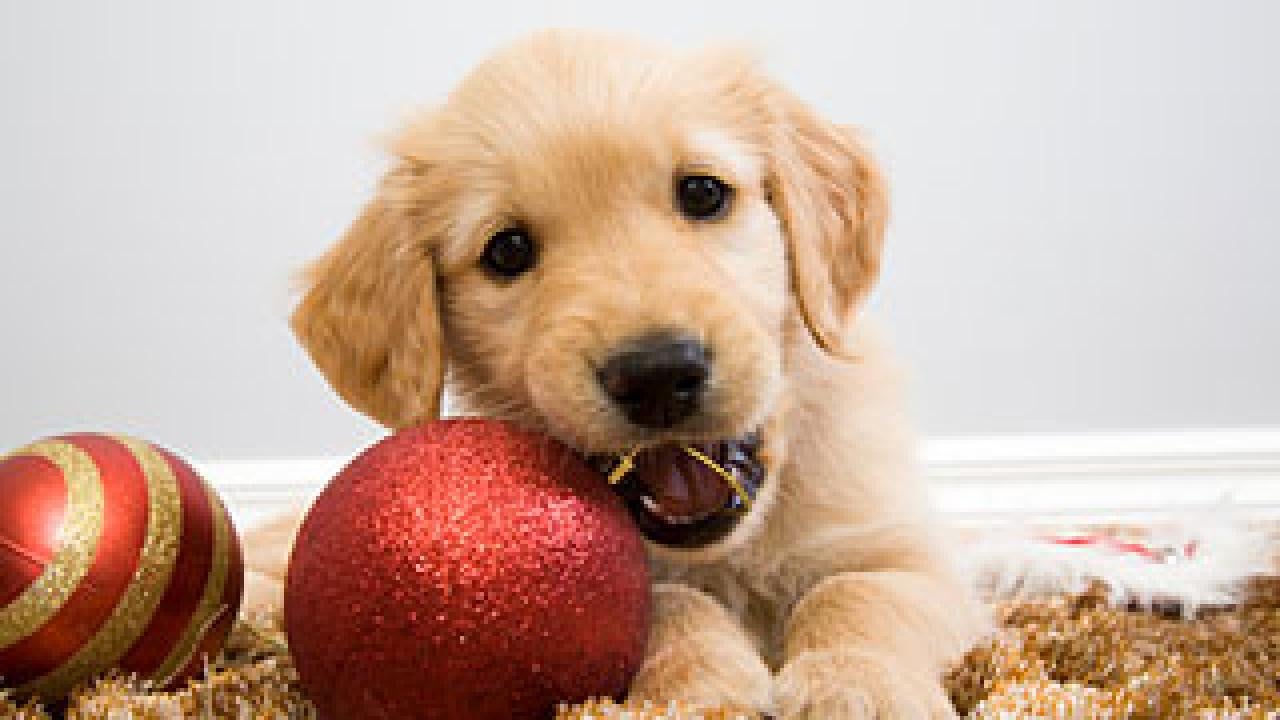Veterinarians at the University of California, Davis, offer some helpful tips to keep your pets safe this holiday season.
While the holidays are filled with traditional foods and decorations, those same items can cause harm to your pets if ingested. Every year at the UC Davis William R. Pritchard Veterinary Medical Teaching Hospital, veterinarians treat pets that get sick from eating the holiday decorations and treats.
“We love to decorate our homes for the holidays,” said Karl Jandrey, an assistant professor of clinical small animal emergency and intensive care at UC Davis. “But, we need to keep in mind that some of our decorations and treats can be hazardous to our pets.
“Thankfully, most of the items ingested are only minimally harmful. However, some seemingly harmless holiday items can cause internal damage or even death to your pet,” he said.
Items to watch out for:
- Chocolate — Chocolate contains ingredients that can be toxic to pets. The darker the chocolate, the more dangerous it is. While dogs are the most susceptible, cats and other species may be affected, too. It is best to avoid letting any of your pets eat chocolate. If they have eaten chocolate and show signs of anxiety, agitation or vomiting, consult a veterinarian immediately.
- Poinsettias and holly — These traditional holiday plants can cause mild irritation to a pet’s mouth and may cause minor drooling, decreased appetite or vomiting. Seek veterinary care if these signs progress.
- Mistletoe — In small amounts, mistletoe can cause gastrointestinal irritation, possibly resulting in drooling, vomiting or diarrhea. Larger amounts could cause more severe harm. Consult veterinary care immediately if your pet has eaten any mistletoe.
- Electrical cords — Pets can easily be electrocuted if they chew through holiday light cords, which are usually thin and not insulated. Respiratory distress is a sign of electrocution, as well as a burn mark across the lips or tongue. Consult veterinary care immediately if your pet has these signs.
- Tinsel — While it makes a beautiful decoration, tinsel can be deadly to your pet if swallowed. It can easily cause an intestinal blockage and leakage of the consumed material into the abdomen. If you suspect your pet has eaten tinsel, and it has a loss of appetite, vomiting or diarrhea, seek veterinary care.
Keep a close eye on your cats and dogs around these items to help to ensure a safe and happy holiday season. The best medicine may be prevention.
The UC Davis Veterinary Medical Teaching Hospital is open and ready 24/7 for emergencies during the holidays.
About the Veterinary Medical Teaching Hospital
The William R. Pritchard Veterinary Medical Teaching Hospital at the University of California, Davis — a unit of the School of Veterinary Medicine — provides state-of-the-art clinical care while serving as the primary clinical teaching experience for veterinary students and postgraduate veterinarian residents. The hospital treats more than 35,000 animals a year, ranging from cats and dogs to horses, cows, and even more exotic species. To learn more about the hospital, please go to our website, and follow us on Facebook and Twitter.
Media Resources
Pat Bailey, Research news (emphasis: agricultural and nutritional sciences, and veterinary medicine), 530-219-9640, pjbailey@ucdavis.edu
